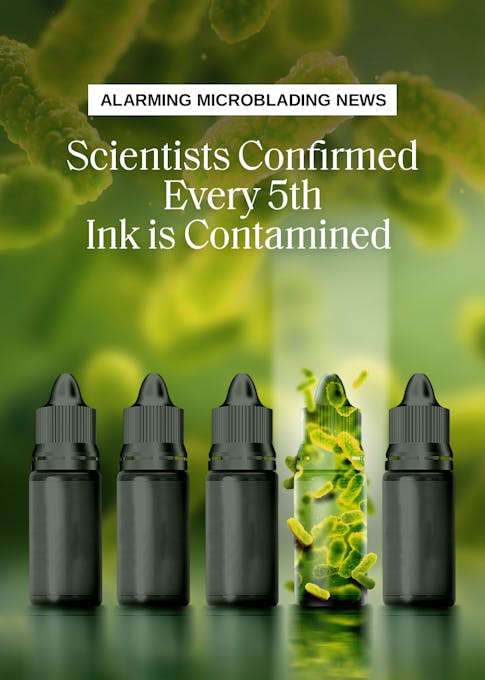A jaw-dropping U.S. Food and Drug Administration (FDA) study has uncovered that an alarming 19% of unopened and sealed permanent makeup (PMU) inks are contaminated with harmful microorganisms, raising serious concerns over the safety of microblading and other cosmetic tattoo procedures. With almost 1 in 5 PMU inks posing potential health risks, it's crucial for consumers to choose wisely and prioritize safety when opting for permanent makeup.
The link to the study: FDA Study on PMU inks in the United States
Permanent makeup, also known as cosmetic tattooing, is a popular procedure where colored pigment is injected into the skin to create a makeup look such as eyebrows, lip liners, and eyeliner. Although the FDA regulates traditional tattoos, PMU inks are considered cosmetics and require premarket approval before being sold. Despite this, the booming popularity of PMU has led to increased risks and complications associated with the procedure.
The FDA study examined 47 PMU inks from nine manufacturers, revealing that nine of them contained harmful bacteria, including clinically relevant species. Among these were Bacillus spp., which are known for their ability to survive in extreme environments. While some bacteria can have positive effects, the presence of harmful strains can cause serious infections and health risks if injected into the skin.
In response to the shocking findings, experts are urging stricter regulations and checks to ensure the safety of PMU inks used by microblading artists. The number of recalls of permanent makeup inks due to contamination highlights the urgent need for improvements in industry standards.
According to scientists, multiple factors can contribute to the presence of harmful microorganisms in PMU inks. It's clear that further research is needed to identify all these factors in order to effectively prevent contamination in the future.

